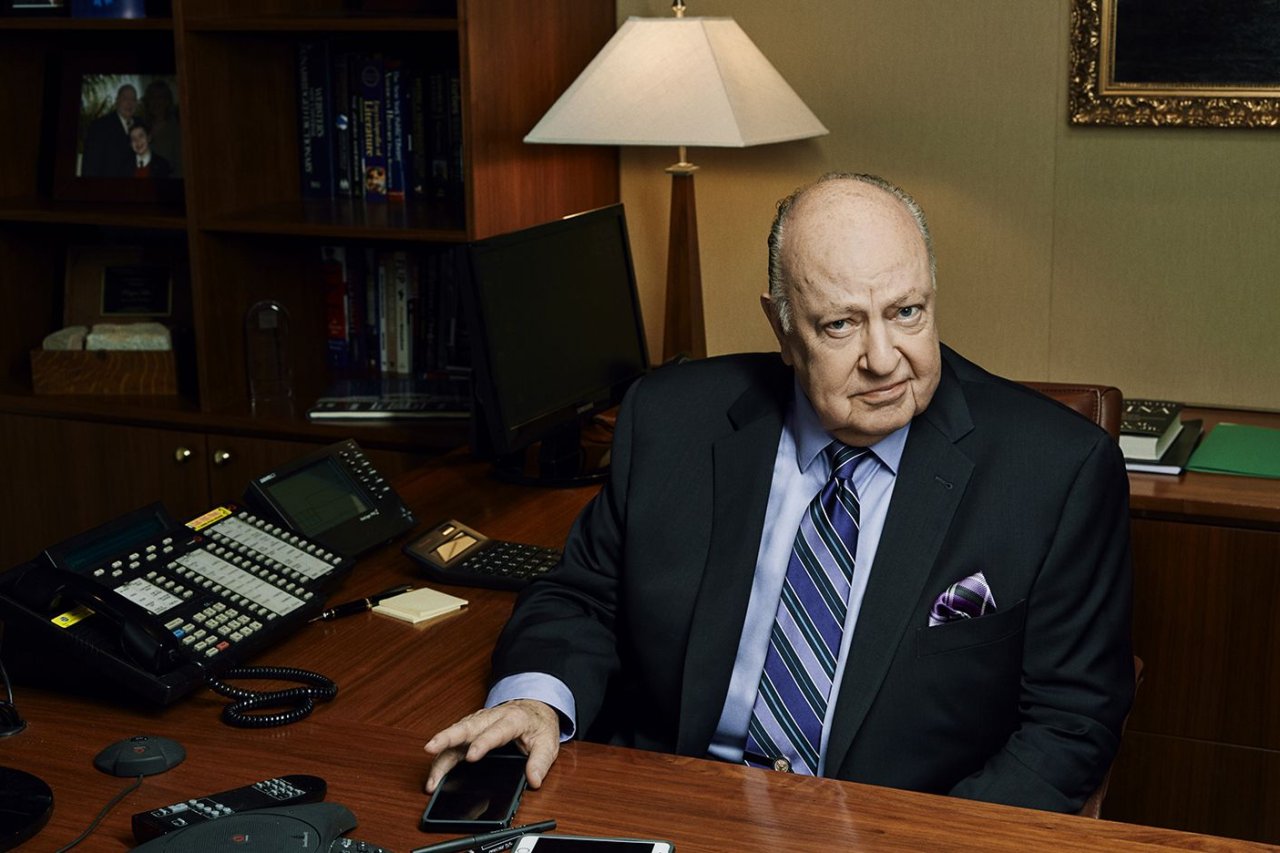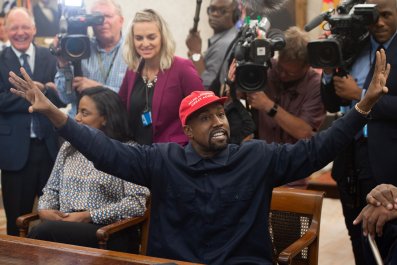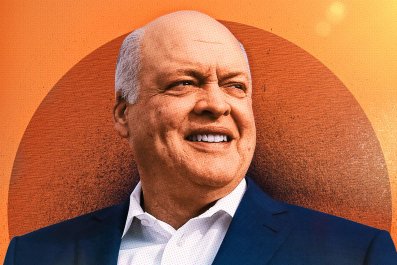In 1967, a young television producer approached Richard Nixon to chat about the value of TV in politics. Having lost a presidential bid to the telegenic John F. Kennedy seven years earlier, Nixon hired him—and won the White House.
That man, Roger Ailes, would eventually build Fox News into a wildly profitable right-wing media empire and set the stage for a bloviating reality TV star to land in the White House. But behind the scenes, he was a source of terror for some of the network's female employees, allegedly harassing numerous staffers—including on-air stars like Gretchen Carlson and Megyn Kelly—and blacklisting some who declined to sleep with him.
The pattern came to light in 2016, when Carlson filed a lawsuit against him. About 10 more women came forward to allege sexual misconduct, and 21st Century Fox paid out $45 million in settlements to the women. "The casualness of his cruelty was shocking," says filmmaker Alexis Bloom, whose gripping new documentary, Divide and Conquer: The Story of Roger Ailes,is being released December 7.
The film gives insight into Ailes's lonely early life in Ohio and his rise as a ruthless political consultant during the Reagan era. With opinion-driven cable news in its infancy, he sensed an opportunity for a network that would not just speak to white conservatives but arouse their outrage and racial resentment. Yet Divide is most fascinating when it traces Ailes's downfall—including on-camera interviews with the crisis communications gurus who were summoned to his house after he was ousted from Fox News in 2016. Ailes, a lifelong hemophiliac who regarded the condition as a time bomb, died last year while the documentary was in progress, but the 24-hour outrage machine he created lives on.
In an interview with Newsweek, Bloom described what she learned about Ailes's life, behavior toward women and intense paranoia.
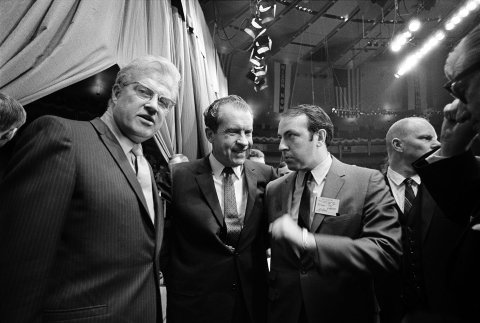
Why make a film about Ailes now?
I think his impact on the American landscape is profound, culturally and politically. I had a very acute sense that we were living in his world.
Do you consider Ailes to be one of the primary architects of the Trump presidency?
I do. Roger gave Trump a weekly slot on Fox & Friends, every Monday [from 2011 until 2015], where he opined on politics. He was famous from The Apprentice, but you have to have political legitimacy. Roger allowed Trump to pivot from being this bombastic real estate guy to being someone people took seriously when he spoke about the economy or politics. We were surprised when Trump announced his candidacy, but people who regularly watched Fox thought: Oh, this guy's got real opinions about politics.
What impact did Ailes's death have on the film?
It certainly meant we couldn't interview him. I think it freed some people to talk about him because they were scared of him when he was alive. In general, it made it easier to report on the film, because he was very litigious and very aggressive.
Is it true that Ailes carried a gun with him at all times?
Yeah. That's from multiple sources. He had a gun permit, legally. He had guns in his drawer in the office. He had a full-time security detail.
What shocked you about his life while making this film?
The depths of his paranoia. That somebody could be so functional in a major corporate setting and yet so utterly riven by paranoia to the extent that he thought a Bangladeshi accountant employed by Fox was a terrorist. You can have disagreements with people on the political spectrum, but he literally thought it was [former President Barack] Obama's intent to destroy the United States. I learned lots of things off the record about his paranoia that were mind-boggling
I was also surprised about the punitive nature of the sexual harassment. We started doing this before #MeToo. I talked to a lawyer about the [nondisclosure agreements], and I learned there was a clause in the 21st Century Fox settlement that said you cannot apply to the company or its affiliates for the rest of your life.
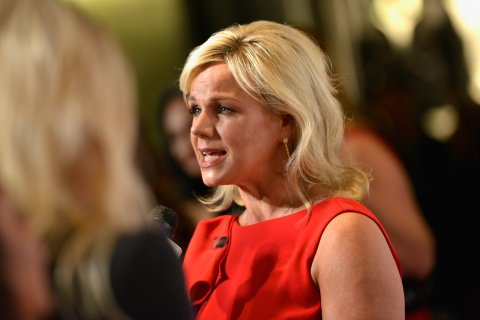
There is a stunning interview in the film with a woman who says Ailes tried to pressure her into sex when they met together in the '90s. She said no, and her career was destroyed.
I think it was routine for him. Everything was transactional. We didn't interview Gretchen Carlson or Megyn Kelly for legal reasons—Gretchen signed an NDA—but there is something valuable to be learned by ordinary stories of cruelty. It's not a famous anchor. It's not some big power play. It's just everyday acts of abuse and pettiness.
How did he get away with this?
He made money. As long as he was making money hand over fist, Rupert Murdoch basically said, "Don't look too closely in his books." There was no oversight. He appointed his own legal counsel. He appointed his own HR.
How did you persuade these women who had been harassed by him to talk on camera?
They had come forward to [employment attorney] Nancy Erika Smith when Gretchen Carlson filed her suit. They hadn't gone on camera. [We approached them] the same way you approach anyone else: with an openness and honesty and respect. None of the women who went on camera talking about Roger ever received money because of his harassment. There was no obvious reason for them to speak. Again, it was before #MeToo. They just felt strongly enough about it.
The film shows that he was treating women this way as early as the 1960s, when he was a producer on The Mike Douglas Show. Were you shocked this had been going on for nearly 50 years?
I was disgusted, but I wasn't entirely surprised. Sexual harassment or abuse is not a one-note thing. It's possible his behavior changed over that period of time. Back in the Mike Douglas days, he certainly propositioned the woman that we interviewed [in the film], but he wasn't punitive to her in the same way. There's an argument to be made that he got more and more paranoid, more and more cruel.
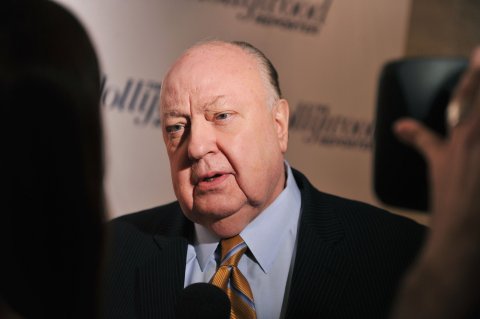
What was the driving factor of Roger's career?
A sense of grievance. Being an outsider. He wasn't bullied at school, but he was a hemophiliac, and he had a contentious relationship with his parents. He had a great deal of vulnerability growing up. He probably overcompensated for it. There are some turning points in his life. One was at the network America's Talking, which became MSNBC, when he came into conflict with executives he characterized as elitist liberal insiders. As [producer] Felycia Sugarman says in our film, he turned around and said: "I'm gonna fuck them. I'm gonna fuck them as they've never been fucked before." Certainly, Fox News was born out of a sense of revenge.
Are you worried that Roger's allies are going to come after you?
No, I'm not. I'm in the best possible company. Alex Gibney took on scientology. He's taken on the Catholic church. I feel like the responsibility to call truth to power is greater than the risk you run by doing so. If we were making a film on Rupert Murdoch in a feature-length way, I'd probably be more worried. He's both alive and has deeper pockets.
Do you think Fox News has turned millions of Americans into more ignorant and fearful people?
Roger certainly ginned up the fear that pre-existed. He saw the country's division and weaponized it. In terms of ignorance, I think Roger pulled the wool over people's eyes. They thought what they were getting out of Fox was news, and it wasn't.… For a certain portion of the population who regard Fox News as their primary news source, that is ultimately debilitating.
Trump, of course, begins each morning watching Fox & Friends.
I always had this phrase in my head: "The king is dead, long live the king." Roger is dead, but here's a creature come from the ashes.



